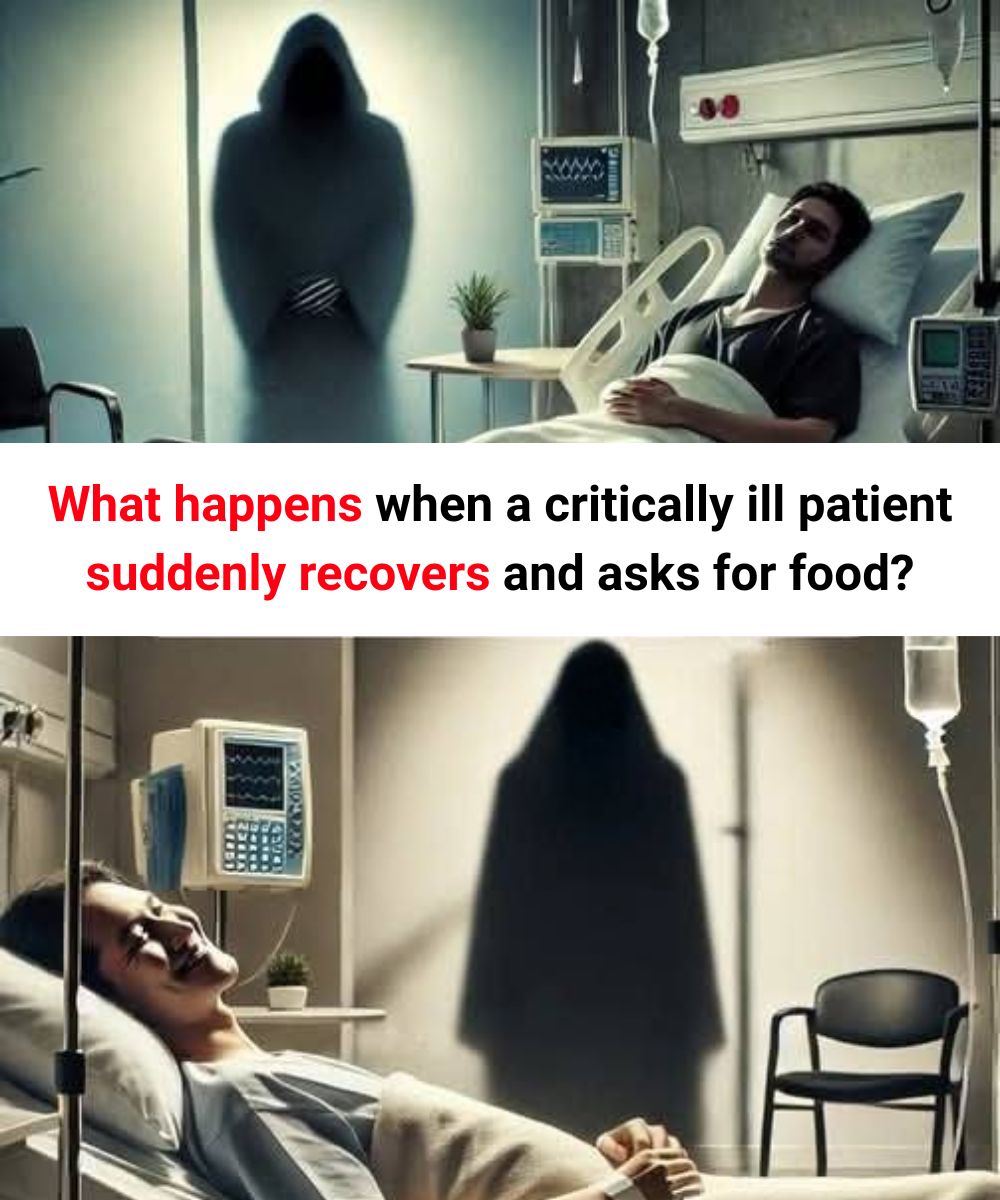
There are certain circumstances in the medical field that baffle both medical staff and the relatives of patients. One of the most disconcerting phenomena is “before d3ath.” This phrase describes severely sick individuals, frequently receiving palliative care or nearing death, who suddenly appear to be getting better, beg for food, and even engage with their loved ones as though they were recovering. However, the patient’s d3ath frequently occurs hours or days after this abrupt recovery.
Throughout this article, we’ll discover what occurs when a critically ill patient suddenly seems to enhance, the possible explanations behind this phenomenon, and the impact it has on the families who witness this strange and sometimes hopeful moment.
The “getting better before dying” phenomenon

Physicians and caregivers have been observing “Improvement before d3ath” for centuries, and while there is currently no fully satisfactory scientific explanation, many people have seen this phenomenon. In these situations, a patient who has been weak, unresponsive, or disengaged from their environment for days or weeks appears to “wake up” and behaves with vigor, appetite, and mental clarity. This enhancement could consist of:
Increased energy: The patient appears more alert and active.
- Mental clarity: They can speak coherently and have meaningful conversations, often recalling details or past events with great lucidity.
- Renewed appetite: Many patients ask for food or drinks that they had not wanted or been able to consume during their illness.
- Emotional interaction: Some express love, gratitude, or emotions they haven’t shown in a long time.
Medical explanations behind the “improvement”
Although there is still no definitive answer as to why this phenomenon happens, several medical theories have been proposed to reveal it:
- A final brain activation: In the moments before d3ath, the brain experiences a final burst of electrical activity. This can generate a temporary feeling of mental clarity and energy that deceives both patients and observers.
- Changes in metabolism and body systems: As the body approaches the end of life, some biological processes may suddenly change.
- The role of endorphins: Another theory suggests that the body releases large amounts of endorphins in the final moments, which can generate a feeling of well-being and energy.
- Disconnecting from pain: For terminally ill patients, palliative medications can reduce pain and enhance comfort, allowing them to be more present in their final moments and creating the illusion of recovery.
The emotional and spiritual dimension

For many people, improvement before d3ath is a deeply meaningful and spiritual moment. Some religious beliefs interpret this phenomenon as an opportunity to say goodbye or as a signal that the patient’s soul is making a peaceful transition. This event can bring comfort to families, who see it as an opportunity to share one last special moment with their loved one.
Emotional impact on loved ones
Emotions are complicated when a loved one appears to get better all of a sudden. Confusion, happiness, and hope can mix, and many family members start to think the patient is about to recover from their illness. It can be disastrous, though, if this progress is followed by d3ath. For families to comprehend this phenomenon and know what to anticipate, it is critical that they receive the emotional support and direction of medical specialists.
What to do if “improvement before death” happens?

If a seriously ill patient presents a sudden improvement, it’s crucial to take advantage of that moment of connection, love, and closure. Here are some tips for controlling this situation:
- Enjoy the moment: Take the opportunity to be present and share a meaningful moment with your loved one.
- Don’t create false expectations: It is important to remember that this improvement may be temporary and not necessarily a sign of recovery.
- Consult with healthcare professionals: Maintain open communication with doctors and caregivers to better know what is occuring and what to predict.
- Find emotional support: These times can be emotionally challenging, so it’s a good idea to find the support of a therapist or spiritual advisor if necessary.
Final reflection
“Improvement before d3ath” is a phenomenon that tests our medical and emotional understanding of the dying process. Although we still don’t have a complete scientific explanation, its emotional impact on loved ones and its role in final farewells cannot be minimized. This mysterious episode provides a last moment of peace and connection, a chance to say goodbye, and although it is often followed by loss, it can also offer significant emotional closure.















